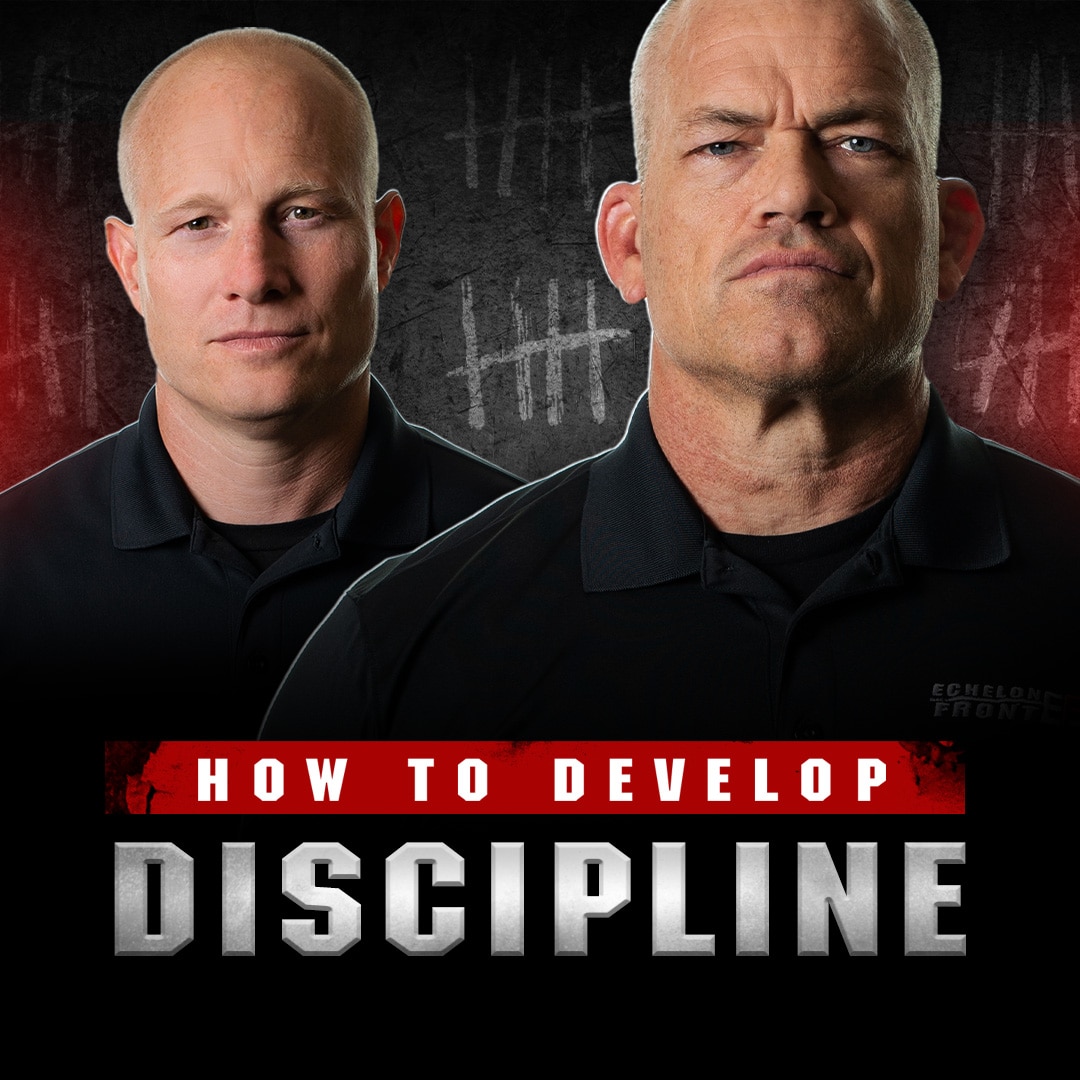Achieving self-discipline is a pivotal aspect of personal growth, success, and freedom in every single area of your life. No human is born with self-discipline. It is a skill, and like any skill, we can get better or worse at being disciplined individuals. Cultivating self-discipline involves a combination of deliberate personal choices and mindsets that, if practiced over time, become the habits that lead to self-discipline. This guide delves into various methods to help you cultivate the skill of self-discipline.
Understanding What Self-Discipline Is
The foundation for cultivating self-discipline lies in understanding what it is. The Oxford Dictionary defines self-discipline as “the ability to control one’s feelings and overcome one’s weaknesses; the ability to pursue what one thinks is right despite temptations to abandon it.”
Controlling your feelings and overcoming your weaknesses is no easy task. It may even seem like an insurmountable problem if we view all of our feelings and weaknesses in totality. So, instead of focusing on the totality, what must be done is to focus on and begin with just the first step. And the first step is to understand there is NO easy way to cultivate discipline.
Discipline is a choice. It is that simple and that difficult at the same time. Doing the right thing, making the correct decision, and forgoing instant gratification in the pursuit of strategic goals, all of these are choices that must be repeatedly made, day after day. If you do not fully understand this, you will continue to struggle, you will continue to flounder, you will continue to succumb to your feelings and weaknesses, and ultimately, you will fail in your pursuit of becoming a disciplined individual. You will fail because your emotions and feelings will continue to drive your personal choices and, thus, ultimately determine your future.
At the end of the day, what Self-discipline is and always will be is a choice.
Self-discipline is also all-encompassing. A disciplined person is someone who has the ability to control one’s feelings and overcome one’s weaknesses in every single area of their life. If you do not choose to be disciplined in every area of your life, then you are not a disciplined person. Even if you are very disciplined in one area or two areas of your life, if you are choosing to let your weaknesses control you or your feelings determine the choices you make in one single area of your life, then you can not call yourself a disciplined person.
The good news is discipline breeds discipline. The more you choose to overcome your feelings and make disciplined choices in one area of your life, the easier it becomes to make the right choices in other areas of your life. If you make the choice to wake up earlier, go to the gym, and eat healthier, then it becomes easier to make disciplined decisions in other areas of your life as well.
Understanding What Self-Discipline is Not
Self-discipline is not an emotion. Emotions will almost always lure the individual into comfort. Being self-disciplined is rarely comfortable. Emotions are also temporary feelings, and as discussed, self-discipline is a choice that must be repeatedly made. If one grants their temporary emotions control over their choices, too often, the undisciplined decision will be made. Emotions are the number one enemy of discipline.
Self-discipline is not motivation. Often, people rely on motivation as they attempt to become a more disciplined individual. Unfortunately, this strategy is destined for failure because self-discipline and motivation are opposing forces. Motivation relies on a feeling to aid the individual. Self-discipline almost always requires one to forcefully subdue their feelings in order to set aside short-term desires in the pursuit of achieving long-term, strategic goals. Put simply, motivation is fleeting. If one relies on motivation, they will become trapped in an endless cycle of choosing to be disciplined only when they feel motivated, which is not their normal state of mind.
The legendary Middle-weight boxing champion, “Marvelous” Marvin Hagler, was an excellent example of an individual who relied on self-discipline and not motivation to achieve his long-term goals. Hagler was famous for his grueling training camps where he would isolate himself with his training team for months before a fight, and live in spartan-like conditions during the harsh New England winters. Every morning, regardless of the freezing temperatures and regardless of how tired he was, he made the choice to get up, lace up his running shoes, and put in the hard miles and hard training needed to condition himself for a 15-round fight. Undoubtedly, there were numerous mornings where Hagler did not “feel” motivated to train, but he never missed a training day. His ability to subdue his emotions and feelings in pursuit of his strategic goal allowed him to reign as the Undisputed Middle-Weight Champion of the World for an unprecedented 7 years, from 1980 to 1987. Relying on motivation will only lead to disappointment and failure.
Lastly, self-discipline is not a constant state. Self-discipline can be cultivated, and it can be lost. Complacency will creep in if allowed, especially after one has made significant progress in developing discipline. An individual can spend years cultivating discipline and if they allow complacency freedom of maneuver, it will slowly seep their discipline from them. Most frequently, by trying to convince them it is not a big deal if “just this once,” they allowed themselves to take the easy way out. Do not be lulled into complacency.
Why Does Self-Discipline Fail
Self-discipline fails because we fail to detach from our emotions.
Why is detaching ourselves from emotions so important to cultivating discipline? Almost always, our emotions will be urging us to take the path that “feels” the best or to take the path to instant gratification. Our feelings will blind us to our long-term goals and beg us to live for the moment.
By detaching from our emotions, we can see exactly what our emotions are trying to get us to do. By detaching from my emotions, I can see and predict the future. I can clearly see the two paths before me. I see that if I continue to be undisciplined and if I continue to pursue instant gratification, I will continue to fail to progress in many areas of my life. I can also see that if I remain disciplined, if I detach from the emotions that are trying to get me to make the wrong choice, then I am a step closer to the financial, personal, or professional freedom I desire.
Another reason self-discipline fails is that we negotiate with ourselves. More specifically, we negotiate with our emotions. In a negotiation, each side has a goal and a desired end state. Sometimes, the goals are stated, and sometimes the goals are left unstated. Your emotion’s goal is to get you to choose the easiest path because that is where comfort lies, and that is what feels the best.
Do not negotiate. Negotiations are where complacency can begin to get a foot in the door. Negotiations are where our emotions try to convince us that it is not that big of a deal if we “just this once” choose instant gratification or “just this once” do not control our feelings. Negotiations can be won, and they can be lost. The best way to win a negotiation with yourself, is to not have one in the first place.
Understand Your “WHY”
Another aid to cultivating discipline is understanding what you are hoping to achieve. At Echelon Front, we call this “The Why.” Put simply, what is your mission, and what does mission success look like?
Do I want to achieve more freedom of schedule so I can spend time with my family? Do I want to earn the trust and respect of my boss so I can have opportunities for increased responsibility and increased pay at work? Do I want to have financial freedom so I can retire early or pursue a passion project?
Understanding “The Why” allows us to order our day and solve problems in alignment with our mission. If my mission is to achieve financial freedom, then purchasing that brand-new vehicle is not in alignment with my goal, and I can detach from my emotions and make the right decision.
If my mission is to have more free time so I can spend more time with my family, then I know I need to order my day around a set schedule that blocks out distractions, and I know that I need to say no to things that will take away that free time.
Cultivating Self-Discipline is difficult, and there will be numerous distractions and problems you will face. Understanding and focusing on “The Why” allows us to detach and remove our emotions from the equation and make decisions that are in alignment with our mission and our long-term goals.
Wake Up Earlier and Order Your Day
Now that you understand what self-discipline is, now that you know it is a continuous series of choices that must be made in every area of your life, and now that you understand discipline is not driven by your feelings or motivation, it is time to start cultivating self-discipline. Wake up early, make a checklist, do the checklist. Repeat.
Make the decision to wake up 15 minutes earlier than you normally do, and do not negotiate with the alarm clock when it goes off. By doing this, you are beginning the day by making a disciplined choice and starting your day with a win. Remember, discipline breeds more discipline.
Use this extra time to order your tasks for the day. Make a checklist of what needs to get done that day for work and your personal life, and then do those things. Your checklist should include your workout, your prioritized tasks for work, any events you should be attending for family or friends, any calls you need to make, and check-ins with family and friends.
Once you have made and reviewed your checklist, those items are set in stone. There is zero negotiation. You already determined these things MUST get done, so make the choice to do them. Overcome the temptation to push a task to the next day. Overcome the weakness of wanting to avoid that difficult conversation you need to have. No negotiating. No excuses. Get your tasks, all your tasks for the day, done before your head hits the pillow.
Say no to distractions. A teammate brought donuts in for everyone. No. That’s a distraction from being disciplined about your health and your workouts. A colleague wants to go out to lunch, but you need to use that time to make a call. No. That is a distraction from being disciplined about your time management. A friend wants to go play golf, go fishing, or go to a concert this weekend, but you have been putting in extra hours at work to earn the opportunity for increased responsibility. No. That distracts from being disciplined about spending quality time with your family and leading your family.
There will be days when you just do not feel like you can get it all done. There will be days when distractions will constantly try and prevent you from accomplishing your tasks. There will be days when you are just “too tired” to fit it all in. Good. These are all opportunities to control your feelings, overcome your weaknesses, and pursue what you know is right despite temptations to abandon it. These are all opportunities to choose to have discipline.
Conclusion
There is only one way to become a truly Self-Disciplined person: a person who has discipline in every single area of your life. Make the right choice, the hard choice, repeatedly. Day-after-day. By doing so, you learn to control your feelings and overcome your weaknesses.
It really is that easy. And it really is that hard.




